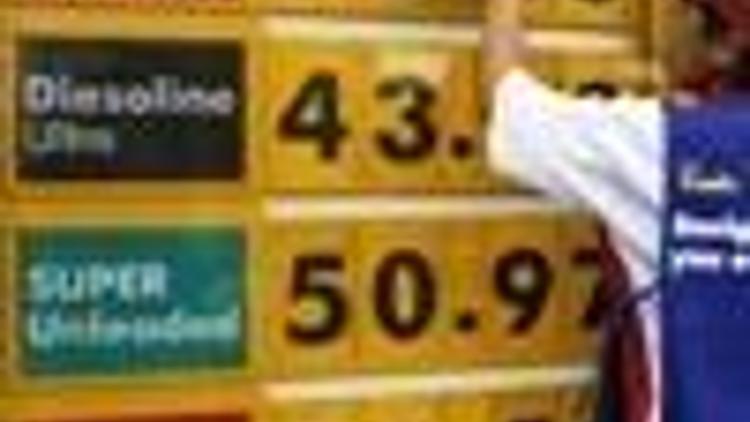Oil prices fall $4 on surprise jump in United States crude reserves
Güncelleme Tarihi:

Oil prices plunged $4 on Wednesday, extending this weeks spectacular losses after a surprise jump in crude reserves in the United States, traders said.Prices had already tumbled Tuesday in the biggest fall in 17 years amid rising concerns about sluggish U.S. economic growth that could dampen global demand for crude oil.
On Wednesday, New York's main oil contract, light sweet crude for August delivery, shed $4.14 to close at $134.60 dollars a barrel. It had dived Tuesday by $6.44 in the sharpest daily decline since January 1991.
In London, Brent North Sea oil for August dropped $2.56 to $136.19 Wednesday.�
Prices fell on news of a build in U.S. crude oil reserves. The US Energy Information Administration said inventories rose by 3.0 million barrels to 296.9 million barrels in the week ending July 11, confounding market expectations of a decline of 2.2 million barrels.
However, the decline in oil prices from last Friday's record high levels above 147 dollars may be short-lived, analysts said, noting that the increase in US energy stockpiles reflected slowing demand in a sluggish U.S. economy, the worlds largest energy consumer.
According to the U.S. government, Americans consumption of petroleum products fell two percent over the past four weeks, compared with the same period a year ago.
A sudden shift in U.S. diplomatic policy toward Iran announced late Tuesday also eased oil supply concerns, analysts said.
The United States said it was sending Under Secretary of State William Burns to nuclear crisis talks Saturday between Irans nuclear negotiator, Saeed Jalili, and the European Unions foreign policy chief, Javier Solana.
"This is the most significant U.S. diplomatic contact since the 1979 Islamic revolution, and represents a dramatic shift in U.S. foreign policy. For our purposes, it will certainly take some of the force out of a major source of the geopolitical premium in oil prices," said John Kilduff, an analyst at MF Global.
"This is not to say that Secretary Burns mission is guaranteed success. The administration has repeatedly stated that Secretary (of State Condoleezza) Rice was prepared to hold talks with Iran provided they cease enrichment. It is upon this issue, though, that Iran has been the most intransigent," Kilduff said.
Iran has the worlds second-largest proven oil reserves and sits aside the Strait of Hormuz, a critical gateway for Middle East oil. It is the number four crude producer and ranks second in the oil cartel OPEC.
OPEC kingpin Saudi Arabia meanwhile on Wednesday denounced speculative trade in oil and called for more dialogue between producing and consuming nations.
"Oil has become ... practically like a currency (that) has attracted speculative interest among some companies and people," said Saudi Arabian King Abdullah in an interview with the Italian daily La Repubblica. "We dont want the price to be so high. It is not in our interest because it is not in the interest of the rest of the world."
Saudi Arabia has warned repeatedly that speculation is the leading cause of soaring oil prices along with rising demand and the taxation of oil products in consumer countries.
The Organization of the Petroleum Exporting Countries on Tuesday cut its forecast for growth of world oil demand this year to 1.20 percent from 1.28 percent, citing an economic slowdown and high fuel prices.

